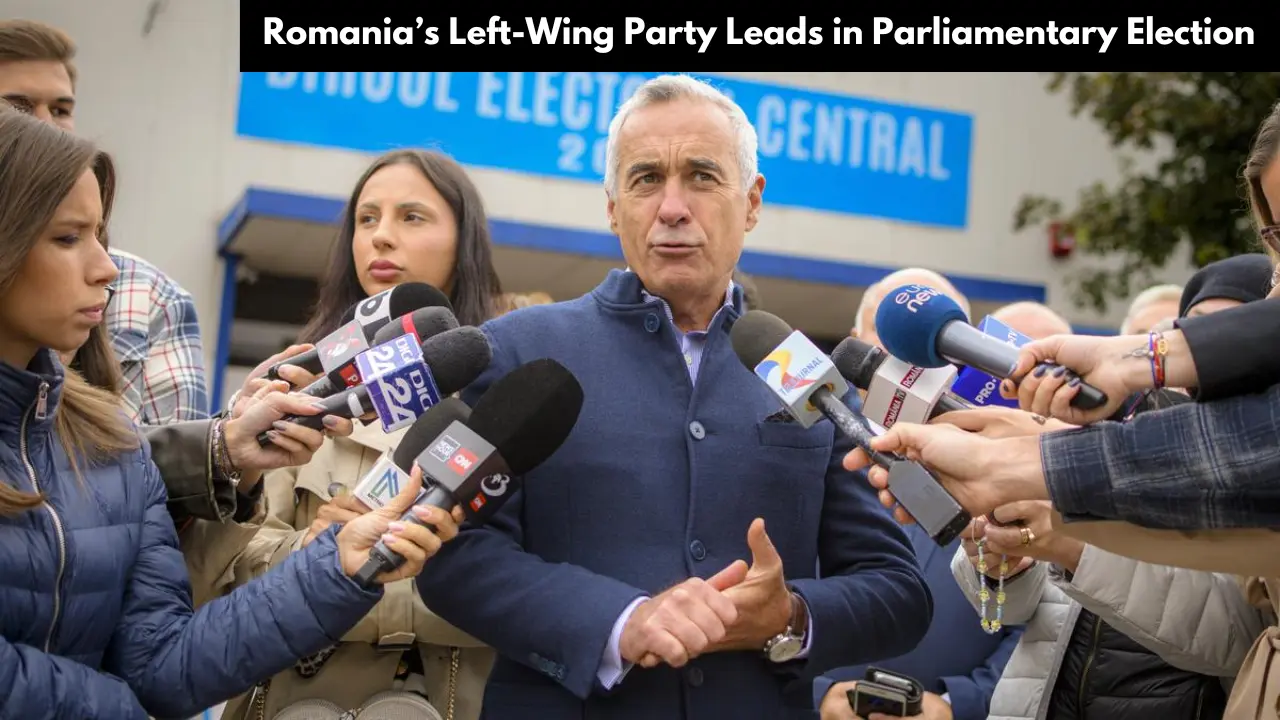In Romania’s parliamentary elections on Sunday, the Social Democratic Party (PSD) was poised to secure the most votes, according to preliminary results, while far-right populist groups appeared to make significant strides in the legislature. Incomplete data, with about 85% of votes counted, showed the left-wing PSD leading with 23.9%, followed by the far-right Alliance for the Unity of Romanians (AUR) at 17.8%. The center-right National Liberal Party (PNL) was at 14.5%, and the reformist Save Romania Union (USR) held 10.9%.
This vote comes just a week after the first round of Romania’s presidential election, which saw far-right candidate Calin Georgescu, previously polling in single digits, win the most votes, plunging the country into political uncertainty. Georgescu, 62, will face off against Elena Lasconi of the USR in a Dec. 8 runoff.
Despite being a relatively new force, the right-wing populist Party of Young People, which backs Georgescu for president, looked set to surpass the 5% threshold required for parliamentary representation, alongside the far-right nationalist S.O.S. Romania party. However, with some diaspora votes still being tallied, the final results could change.
Prime Minister Marcel Ciolacu, who resigned as PSD leader following his poor performance in the presidential race, acknowledged the significance of the election results. He suggested that they send a strong message to Romania’s political establishment.
AUR leader George Simion, who is a vocal supporter of U.S. President-elect Donald Trump, hailed the gains made by anti-establishment forces. He called it a “watershed moment” for Romania, emphasizing the strength of national unity.
AUR, which emerged from relative obscurity to claim 9% of the vote in 2020, champions values like “family, nation, faith, and freedom.” The turnout for this election was remarkable, with 52.3% of eligible voters casting ballots, the highest participation rate in a parliamentary election since 2004.
Many analysts believe the shift toward populist parties signals a broader dissatisfaction with Romania’s mainstream parties, fueled by economic struggles such as inflation, rising living costs, and sluggish growth. The political climate has been further destabilized by allegations of electoral violations and foreign interference, including accusations of Russian involvement.
Georgescu’s popularity, especially among young voters on TikTok, has raised concerns, with some critics suggesting that his rise has been artificially inflated by preferential treatment on the social media platform. Romania’s defense body has expressed concern that Russia sees Romania as a target for destabilizing actions, although Moscow has denied any involvement.



